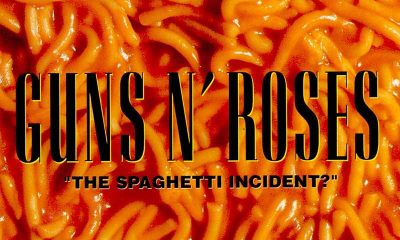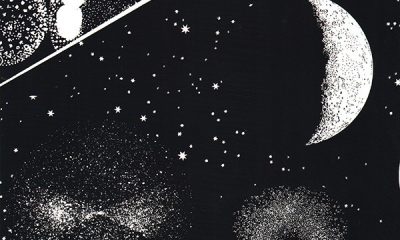

Interviews
Deer Tick Digs Deep on new Record the Black Dirt Sessions
“South by Southwest as a whole just seemed different to me this year,” says John McCauley, lead singer/songwriter for Rhode Island’s best rock band Deer Tick. “It wasn’t as exciting, and we didn’t have a real reason to be there this year.”
Perhaps if the annual Austin music conference had been pushed back to the summer, the grizzled-beyond-his-youthful-years McCauley would’ve enjoyed a greater sense of purpose. The band’s much anticipated new album — which has been in the pipeline since 2009 — will finally be released on June 8th.
Deer Tick has become adept at spreading the word when there is one to be spread, leaving fans clamoring for the group’s third full-length studio album, The Black Dirt Sessions.
“Black Dirt” is a reference to New York’s so-called Black Dirt Region, a 26,000-acre swath of dark, highly-fertile soil left over from an ancient glacial lake. Recorded at Westtown, NY’s Black Dirt Studio, the album’s title grew symbolic as the project developed.
“We had been using Black Dirt Sessions as the working title [of the album] for a long time,” says McCauley. “We got used to calling the record that and decided to keep the name.”
Outside of the regional specificity of the phrase, “black dirt” may not carry much heft. But the sounds and lyrical content of Deer Tick’s new album have more than enough to spare. The album boasts a concerted effort by the band to explore the darker recesses of its creativity, all in an effort to lend its songs heart — even if that heart is broken.
McCauley says he sees The Black Dirt Sessions as a total group effort, and that pointing the band in a new direction has empowered its members. “We’ve kind of stepped away from what people are used to hearing from us, and it’s opened up some new territory. We’re just asserting ourselves as musicians, that [we] can kind of do whatever the fuck we want.”
“We just didn’t want to put the same record out, you know?“
According to McCauley, the album has a weightier direction than the band’s previous entries.
“The record has a darker, moodier vibe. And the songs are different, too. They’re not folky, pop numbers. The new record has got more weight to it. More balls.”
The drive to keep the album on a more earnest plain led the group to release an EP near the end of 2009. More Fuel for the Fire looked like a nice holiday-time treat to many of Deer Tick’s fans, but McCauley admits that the release served a more functional, practical purpose.
“Stuff on the EP was actually from the Black Dirt Sessions, but didn’t really fit into the record,” he says. “Those were songs with some over-the-top, sarcastic production. If one of those songs had made it onto the new record, it would’ve ruined the whole thing.”
Thanks to foreboding arrangements, layered with robust organ tones, sad piano and string arrangements that are often borderline menacing, McCauley’s gloomier-than-ever lyrics are given an impeccably slate-grey backdrop to properly wallow in front of. Self pity and insecurity fill the lyrical lines of “Twenty Miles,” while an angelically ramshackle chorus drones in the background of the appropriately-titled “Choir of Angels,” giving an infinite sadness to the proceeding when he sings, “I fought their battles, and I gave my life for peace and quiet, for pain and strife.”
The good times don’t end there.
The piano has been little used in Deer Tick’s back catalog, yet the deliberate, lonely keys that are prominent in both “Goodbye, Dear Friend” and “Christ Jesus” (a less aggressive, but no less painful, version of a song originally on the band’s album War Elephant), leaves one to wonder why Deer Tick has excluded the keys in the past, given the effectiveness of their employ here.
There are a handful of tracks on Black Dirt that could have fit snugly onto the tracklists for either of the band’s first two albums — the Southern-rocking, hardscrabble blues of “Blood Moon,” and the Doors-ish, organ-rich “I Will Not Be Myself,” prevent things from getting stale and absolutely galvanizing the newness of the band’s darker side. But on the whole, the effort is a mature departure from the band’s norm.
“I see War Elephant and Flag Day as one and the same, while Black Dirt is a different type of record for us,” says McCauley.
Stark, sparse and imminently bleak, it’s of little wonder that the color of the album’s namesake dirt is anything but black.
- Lists13 years ago
Top 10 Country Music Albums of 2010

 Interviews5 years ago
Interviews5 years agoJohn Rich – The Interview

 Song Reviews16 years ago
Song Reviews16 years agoTaylor Swift – “Love Story”

 Interviews5 years ago
Interviews5 years agoHoneyhoney on Hiatus: Revisit our 2008 Interview with Suzanne Santo

 Album Reviews14 years ago
Album Reviews14 years agoAlbum Review: Miley Cyrus – Can’t Be Tamed

 Song Reviews6 years ago
Song Reviews6 years agoThe Band Perry – “Hip To My Heart”

 Columns5 years ago
Columns5 years agoThe Link Between Folk Music’s Past and Present

 Columns5 years ago
Columns5 years agoIs Marketing Killing Rock and Roll?









